3.3 AMR governance
Our response to AMR requires establishing governance mechanisms at the global, national and local levels. However, recent global health crises have exposed deficiencies in the global health governance framework. Specifically, inadequate investment in capacity-building in human and animal health systems, lack of funding to support global responses to disease emergencies, and non-compliance with the IHR 2005 (trade and travel restrictions) (Bennett and Iredell, 2020).
In recognition of these shortcomings, the 2019 final report of the United Nations (UN) Interagency Coordination Group (IACG) on AMR, No Time to Wait: Securing the Future from Drug-resistant Infections, recommended the urgent establishment of a One Health Global Leadership Group on AMR (IACG, 2019). The Global Leadership Group was expected to drive forward the global response to AMR.
Recommendation E2: The IACG recommends the urgent establishment of a One Health Global Leadership Group on Antimicrobial Resistance, supported by a Joint Secretariat managed by the Tripartite agencies (FAO, WOAH, UNEP and WHO), to:
- a.Maintain urgency, public support, political momentum and visibility of the antimicrobial resistance challenge on the global agenda;
- b.Advocate for action, including support for the expanding work of the Quadripartite agencies (FAO, WOAH, UNEP and WHO), and other international and regional entities;
- c.Monitor and report on progress, gaps and accountability in the global response to antimicrobial resistance;
- d.Advocate for multi-stakeholder engagement by facilitating a partnership platform with the participation of Member States, UN agencies, international and intergovernmental organisations and regional entities, civil society, the private sector, researchers and other key stakeholders to develop and work towards a shared global vision, goals and coordinated action on antimicrobial resistance;
- e.Provide advice and guidance on reports of the Independent Panel on Evidence for Action against Antimicrobial Resistance (recommendation E3);
- f.Monitor and advocate for the inclusion of antimicrobial resistance and a One Health ‘lens’ in investments and programmes of major financing instruments for agriculture, health, development, food and feed production and other relevant areas (recommendation D1).
Members of the Global Leadership Group include a broad range of stakeholders from all sectors affected by AMR – human health, animal health, agriculture, environment, heads of state, and global leaders across the spectrum of geo-economic situations.
This high-level independent group is currently chaired by Mia Mottley, Prime Minister of Barbados. Its secretariat is provided by the Quadripartite – formerly the Tripartite, but now with the addition of the United Nations Environment Programme (UNEP). Its mission statement is as follows:
The Global Leaders Group on Antimicrobial Resistance collaborates globally with governments, agencies, civil society and the private sector through a One Health approach to advise on and advocate for prioritized political actions for the mitigation of drug resistant infections through responsible and sustainable access to and use of antimicrobials.
More details can be found on the group’s website (Global Leaders Group on Antimicrobial Resistance, 2025).
3.2 International legal frameworks for action on AMR




